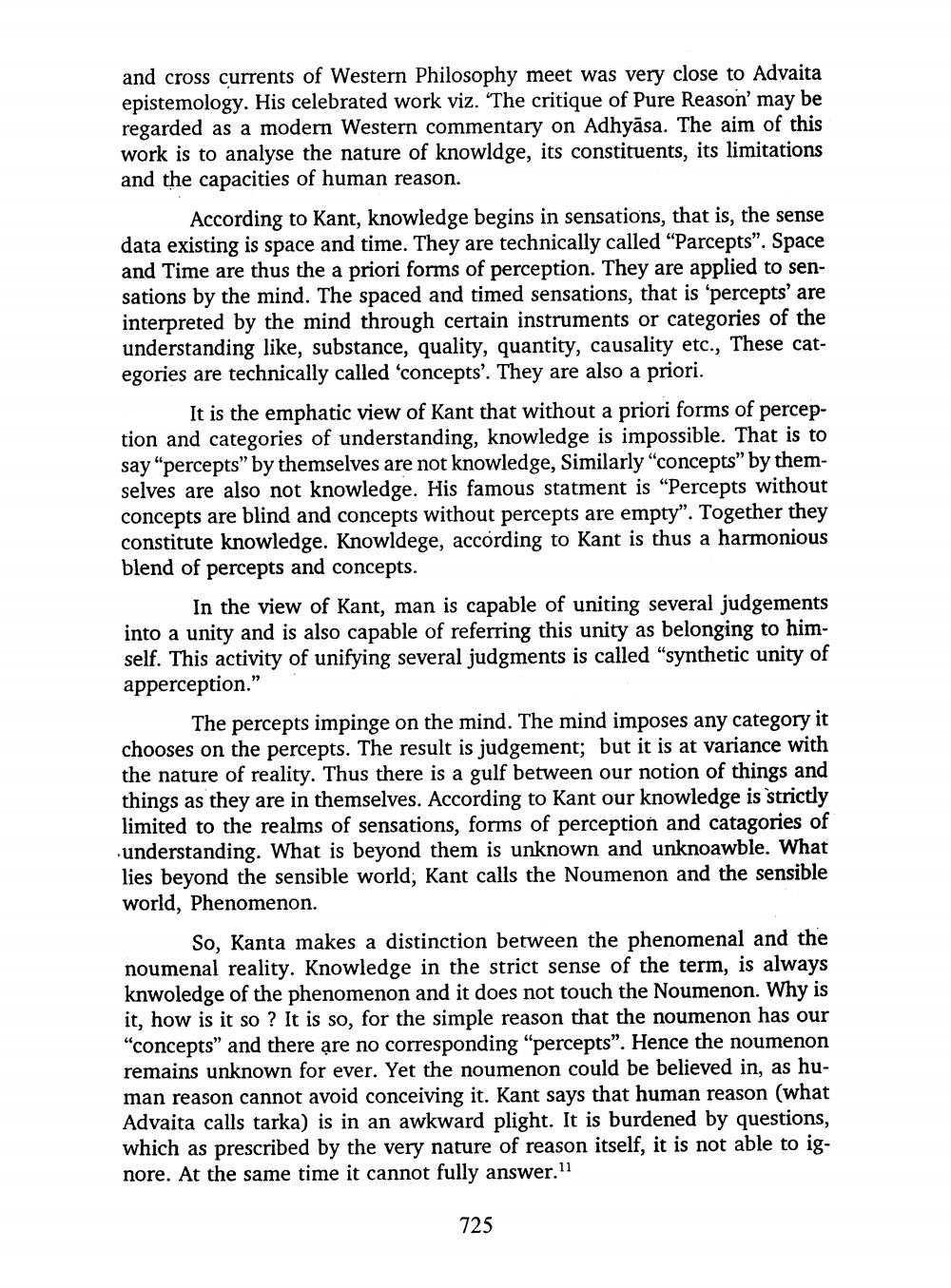________________
and cross currents of Western Philosophy meet was very close to Advaita epistemology. His celebrated work viz. The critique of Pure Reason' may be regarded as a modern Western commentary on Adhyāsa. The aim of this work is to analyse the nature of knowldge, its constituents, its limitations and the capacities of human reason.
According to Kant, knowledge begins in sensations, that is, the sense data existing is space and time. They are technically called “Parcepts". Space and Time are thus the a priori forms of perception. They are applied to sensations by the mind. The spaced and timed sensations, that is 'percepts' are interpreted by the mind through certain instruments or categories of the understanding like, substance, quality, quantity, causality etc., These categories are technically called 'concepts. They are also a priori.
It is the emphatic view of Kant that without a priori forms of perception and categories of understanding, knowledge is impossible. That is to say “percepts” by themselves are not knowledge, Similarly “concepts” by themselves are also not knowledge. His famous statment is “Percepts without concepts are blind and concepts without percepts are empty". Together they constitute knowledge. Knowldege, according to Kant is thus a harmonious blend of percepts and concepts.
In the view of Kant, man is capable of uniting several judgements into a unity and is also capable of referring this unity as belonging to himself. This activity of unifying several judgments is called "synthetic unity of apperception."
cepus.
The percepts impinge on the mind. The mind imposes any category it chooses on the percepts. The result is judgement; but it is at variance with the nature of reality. Thus there is a gulf between our notion of things and things as they are in themselves. According to Kant our knowledge is strictly limited to the realms of sensations, forms of perception and catagories of understanding. What is beyond them is unknown and unknoawble. What lies beyond the sensible world, Kant calls the Noumenon and the sensible world, Phenomenon.
So, Kanta makes a distinction between the phenomenal and the noumenal reality. Knowledge in the strict sense of the term, is always knwoledge of the phenomenon and it does not touch the Noumenon. Why is it, how is it so ? It is so, for the simple reason that the noumenon has our "concepts" and there are no corresponding "percepts". Hence the noumenon remains unknown for ever. Yet the noumenon could be believed in, as human reason cannot avoid conceiving it. Kant says that human reason (what Advaita calls tarka) is in an awkward plight. It is burdened by questions, which as prescribed by the very nature of reason itself, it is not able to ignore. At the same time it cannot fully answer. 11
725




